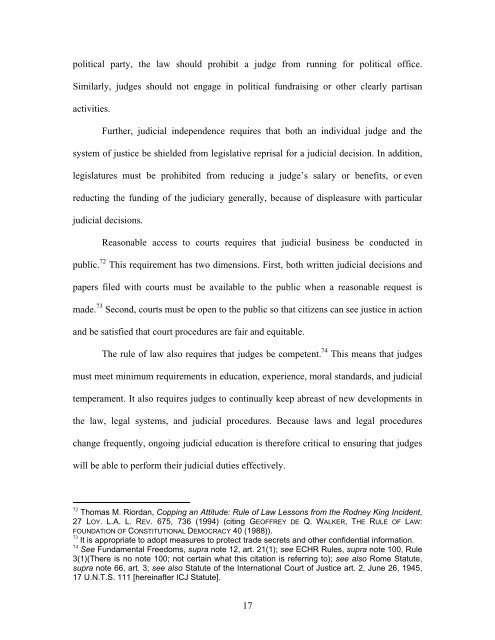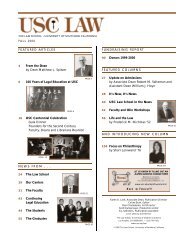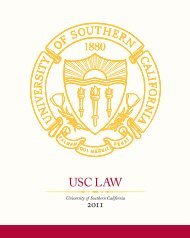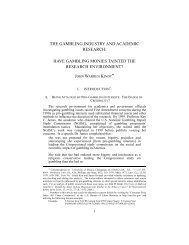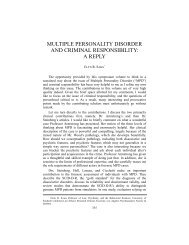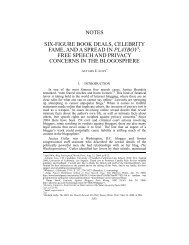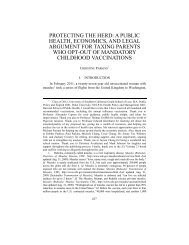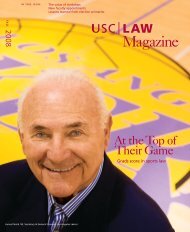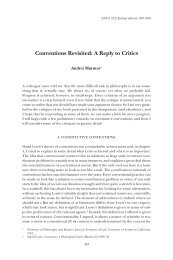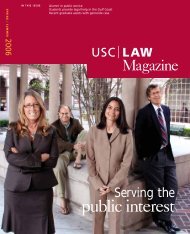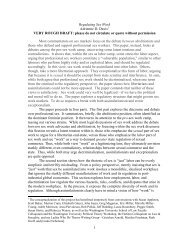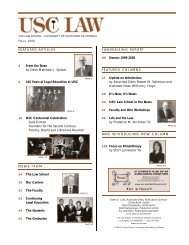Bufford Defining the Rule of Law
Bufford Defining the Rule of Law
Bufford Defining the Rule of Law
Create successful ePaper yourself
Turn your PDF publications into a flip-book with our unique Google optimized e-Paper software.
political party, <strong>the</strong> law should prohibit a judge from running for political <strong>of</strong>fice.<br />
Similarly, judges should not engage in political fundraising or o<strong>the</strong>r clearly partisan<br />
activities.<br />
Fur<strong>the</strong>r, judicial independence requires that both an individual judge and <strong>the</strong><br />
system <strong>of</strong> justice be shielded from legislative reprisal for a judicial decision. In addition,<br />
legislatures must be prohibited from reducing a judge’s salary or benefits, or even<br />
reducting <strong>the</strong> funding <strong>of</strong> <strong>the</strong> judiciary generally, because <strong>of</strong> displeasure with particular<br />
judicial decisions.<br />
Reasonable access to courts requires that judicial business be conducted in<br />
public. 72 This requirement has two dimensions. First, both written judicial decisions and<br />
papers filed with courts must be available to <strong>the</strong> public when a reasonable request is<br />
made. 73 Second, courts must be open to <strong>the</strong> public so that citizens can see justice in action<br />
and be satisfied that court procedures are fair and equitable.<br />
The rule <strong>of</strong> law also requires that judges be competent. 74 This means that judges<br />
must meet minimum requirements in education, experience, moral standards, and judicial<br />
temperament. It also requires judges to continually keep abreast <strong>of</strong> new developments in<br />
<strong>the</strong> law, legal systems, and judicial procedures. Because laws and legal procedures<br />
change frequently, ongoing judicial education is <strong>the</strong>refore critical to ensuring that judges<br />
will be able to perform <strong>the</strong>ir judicial duties effectively.<br />
72 Thomas M. Riordan, Copping an Attitude: <strong>Rule</strong> <strong>of</strong> <strong>Law</strong> Lessons from <strong>the</strong> Rodney King Incident,<br />
27 LOY. L.A. L. REV. 675, 736 (1994) (citing GEOFFREY DE Q. WALKER, THE RULE OF LAW:<br />
FOUNDATION OF CONSTITUTIONAL DEMOCRACY 40 (1988)).<br />
73 It is appropriate to adopt measures to protect trade secrets and o<strong>the</strong>r confidential information.<br />
74 See Fundamental Freedoms, supra note 12, art. 21(1); see ECHR <strong>Rule</strong>s, supra note 100, <strong>Rule</strong><br />
3(1)(There is no note 100; not certain what this citation is referring to); see also Rome Statute,<br />
supra note 66, art. 3; see also Statute <strong>of</strong> <strong>the</strong> International Court <strong>of</strong> Justice art. 2, June 26, 1945,<br />
17 U.N.T.S. 111 [hereinafter ICJ Statute].<br />
17


